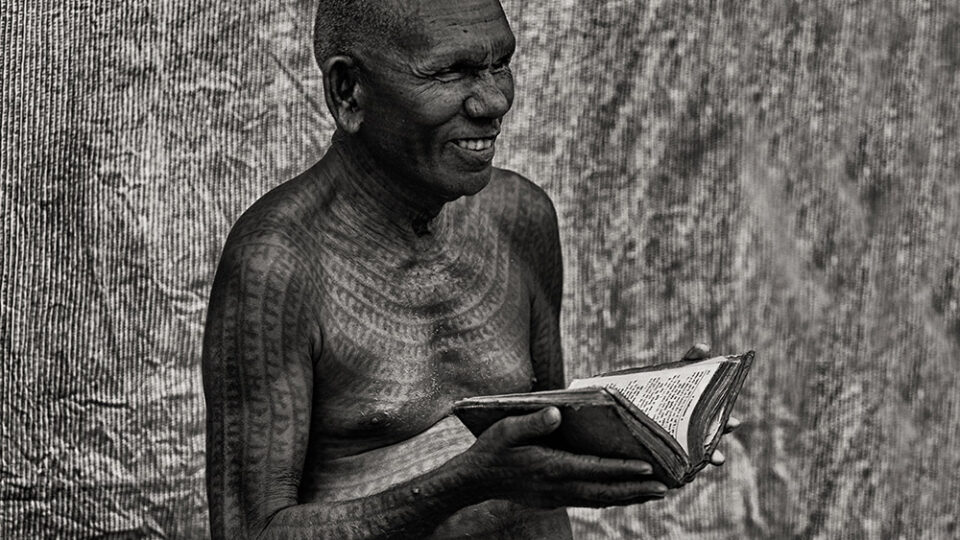God exists within oneself and not just in temples and idols
Centuries old oppression and religious bias have always given rise to new traditions and communities as a sign of defiance to the prevailing customs. Fighting age old caste bias and their right to religion, members of the Ramnami Community cover their bodies with the word ‘Ram”. Belonging to a dalit community, the age old casteism had prohibited the members of the community from entering the village temples. Till date, a large majority of the community have never stepped foot inside the village temples.
Standing by their belief that God exists everywhere and not just in the temples, the members of the Ramnami community tattooed their bodies with Ram as a sign of defiance and devotion towards their God.
As per the tradition, the members of the community get the tattoos after their marriages. The extremely painful process is administered by women members using ink made of water and soot.
The pain and anguish of the community is quite evident as they take the excruciating painful process of covering their bodies with tattoos, sometimes even faces, to express their defiance and disgust towards the age old beliefs and practices of caste discriminations and violence.
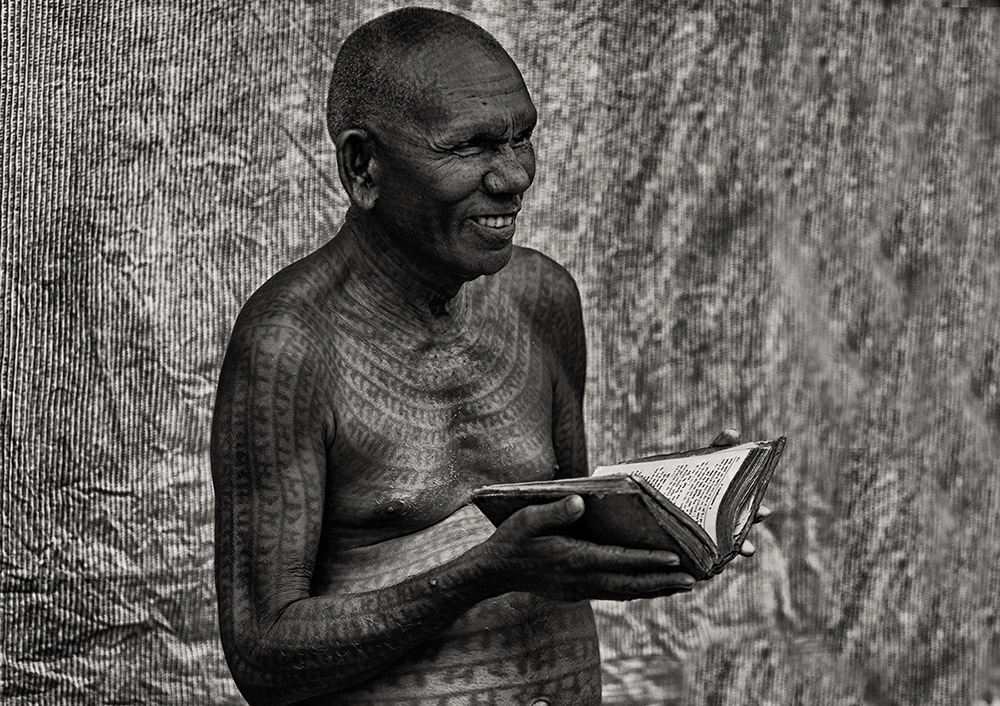
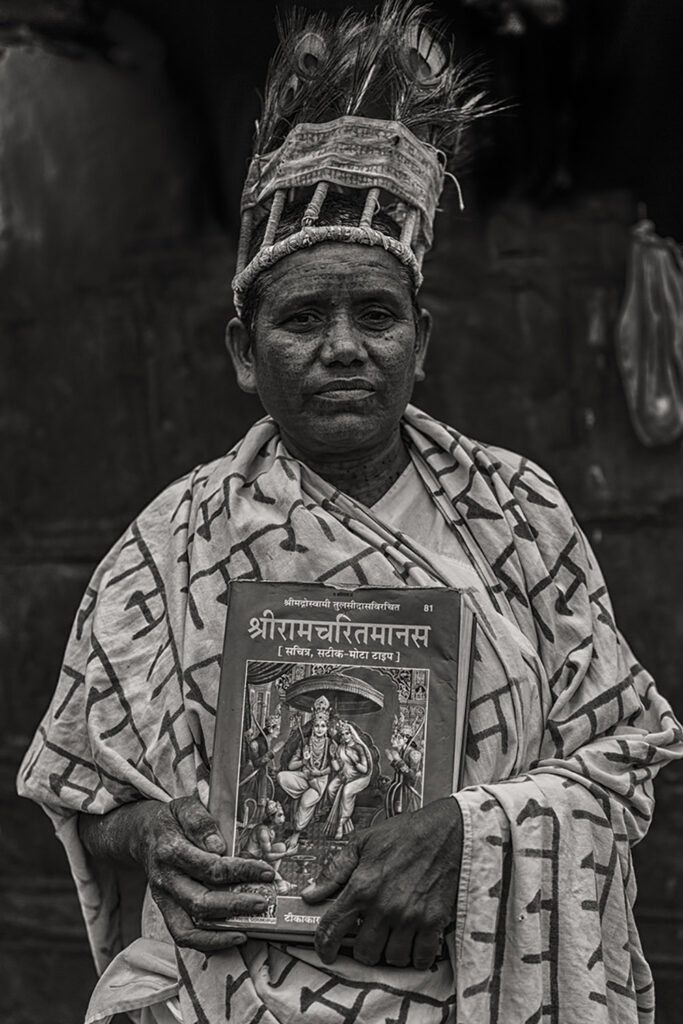
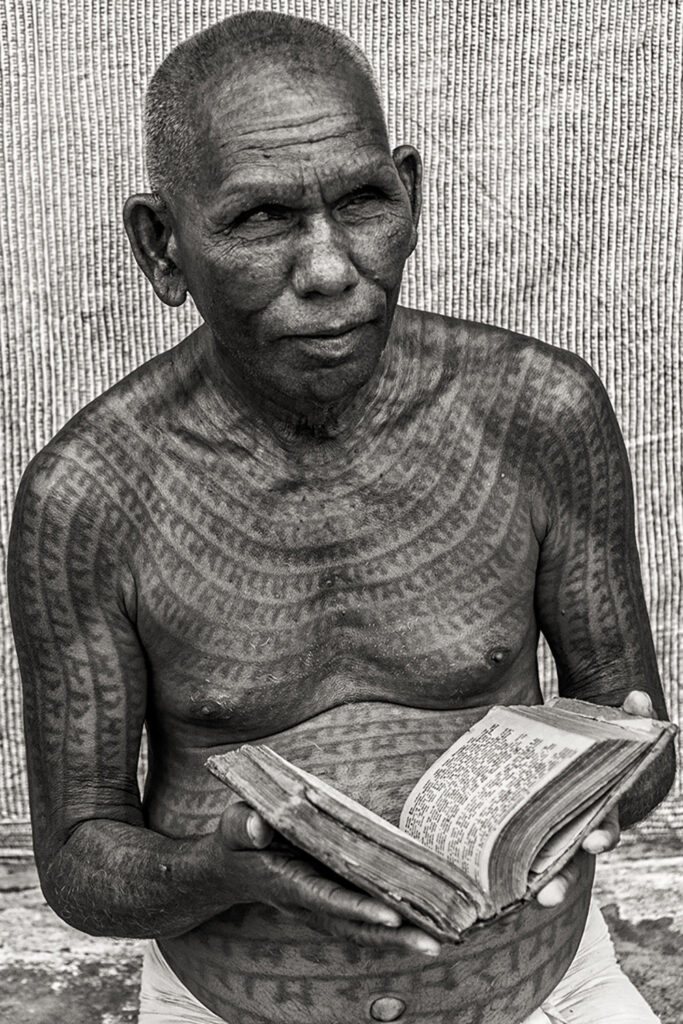
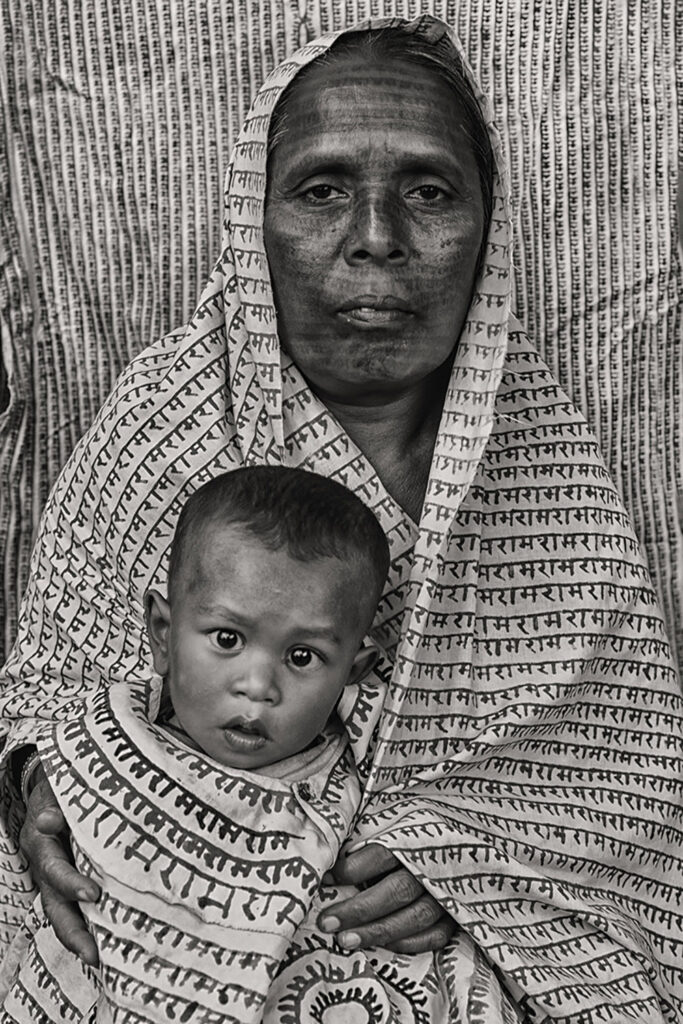
Though the Ramnami Community, more than a lac in number, is spread across four districts of the state, the tradition is gradually losing its significance with the coming generations.
The older members credit the improving social and financial conditions of the community members for the decrease in the practice. As the society biases are eradicated with time, the younger generations of the community don’t feel the need for such a defiance, which has now become a recognition of the community.
As their numbers continue to deplete, the members of the community continue to instil their beliefs amongst the coming generations. The youth, though abstain from covering their bodies with the word Ram, are still required to get a tattoo of the word Ram before the age of two. The community members are also believed to abstain from the consumption of liquor and tobacco.
Though the improving social equality is a reason for the decrease in the practice, there is also a completely different yet disturbing reason behind the depleting tradition as well. A large number of youth refuse to follow their tradition so as to withhold their identity and caste in a country where they believe that caste based discrimination and violence is still prevalent.
The centuries old community that fought caste biases and discriminations with their devoting and faith that God doesn’t belong to just one community is now losing its sheen.
Be it the improving socio-economic equalities or the fear of being recognised and cornered, the age old practice of the Ramnani community is heading towards extinction.

